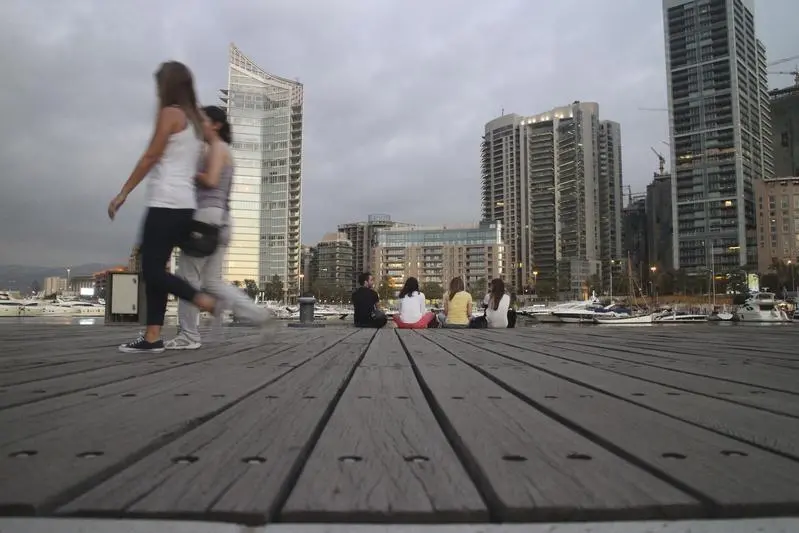PHOTO
Sunday, Sep 25, 2016
Beirut: Notwithstanding its many woes, Lebanon remains a cosmopolitan country with unprecedented dynamism that is the envy of many, promoting intercultural contacts.
The country survived two civil wars and continues to waddle through conflicts, which demonstrate resilience par excellence, even if the societies that inhabit it — and there are several — choose chaos over nation-building.
Despite this organised chaos, Lebanese continue to enjoy themselves.
Thousands have flocked to dozens of prestigious summer festivals like Byblos, Beiteddine or Baalbeck, to enjoy international-level performances. Many more partake in vigorous cultural exchanges that enrich their lives—mostly for free.
While much of Lebanon’s cultural prowess is locally produced — through a flourishing art scene, including theatre, film, music and arts in several languages (Arabic, English, French, Armenian and even Persian) some of it is available through the courtesy of foreign institutes that truly enrich the lives of those who seek such access.
More than a dozen foreign institutes organise a variety of year-long activities, including the teaching of foreign languages, concerts, and a variety of lectures by leading academics and journalists.
Several hold annual fairs and, in the case of the Alliance Francaise, promote a widely attended book fair.
Most excel in language training, and while their primary purposes hover around disseminating their own cultures, the Lebanese benefit from such exposures.
Long before Lebanon became a French colony, both the coastal as well as mountainous regions that make up the country experienced foreign rule.
The Assyrians, Babylonians, and Persians succeeded the Phoenicians and Canaanites, before Hellenistic and Roman occupations set-up shop.
These were followed by the Sassanids, Arabs and Ottomans, whose reign ended in 1918.
Britain and France walked in even before the infamous 1916 Sykes-Picot Agreement that divided the Arab world, while the US opted to deploy its sharpest weapon — education — when it created a college in 1866 that became the American University of Beirut.
America’s people-to-people diplomacy grew significantly in 1953 when Washington established a US Information Agency (USIA) branch in Beirut, whose mission was to “tell America’s story” and “promote mutual understanding” through English language teaching programs, library services, and Arabic-language publications.
Its “John F. Kennedy Cultural Centre and Library” had five branches throughout Lebanon, including in Zahleh and Tripoli.
Over the course of the 1975-1990 civil war, most public affairs activities came to a standstill, when the regional printing office was closed.
Although the US restored some of its cultural services, security concerns dominated its activities, which meant that little of what was once a superlative presence returned.
Other countries, including Spain, Germany, Britain and France, filled the cultural void.
The Instituto Cervantes [Cervantes Institute] was created in 1991 to promote the teaching of Spanish and to spread the culture of Spain.
Named after the great writer Miguel de Cervantes, and present in more than 70 cities around the world, the Beirut branch is one of the most active local institutions today.
The Cultural Center of the Safadi Foundation in Tripoli hosts Cervantes instructors too and similar classes are also held in Kaslik.
Naturally, while the main purpose is to help organize examinations for the Diploma of Spanish as a Foreign Language (DELE), and issue certificates and official diplomas to participants who plan to continue their higher education in Spain, the Cervantes Institute has a full and varied programme of cultural activities including lectures, film screenings, book presentations, exhibitions and dance performances, theatre as well as music. Its library has a collection of about 11,000 books, serial publications, videos, DVDs, cassettes, slides and CD-Roms, and access is free.
A few days ago, it organised a dance evening with the Tomasa La Macanita ensemble, and plans a flamenco concert with the renowned Grupo Pepe Habichuela at the Unesco Palace in a few weeks on a complimentary basis, which contrasts to the expensive tickets many Lebanese purchase during summer festivals.
Similarly, the Goethe-Institut furthers knowledge of the German language though, like its counterparts, it aims much higher. Interestingly, a broad spectrum of cultural events that present German culture are offered and, Beirut was one of the Arab stations for the recently established dialogue points that created a network of up-to-date information about Germany to a greater number of centres in the North Africa/Middle East region. These dialogue points are designed to interact with young Arabs and to provide with free access to information about Germany.
In a truly groundbreaking initiative, the Institut invited the Lebanese to discover “German Sentiments”, and uncover German traces in the country. Although many walk or drive past the Ashrafieh Protestant cemetery, few know that many German tombstones exist within it, a testament to German history in the Land of the Cedars. From the Crusaders to the Red Army Fraction, from the Kaiserswerther Deaconesses to a German steam locomotive, many lived in passed away here, all of which highlighted cultural inter-connectedness. Organizers of the initiative requested assistance from patrons to share photos and relics of German history to further document the incredibly wealthy heritages that exist in Lebanon.
This is the first of a two-part series on the impact of foreign institutes in Lebanon.
by Joseph A. Kechichian Senior Writer
Gulf News 2016. All rights reserved.





















